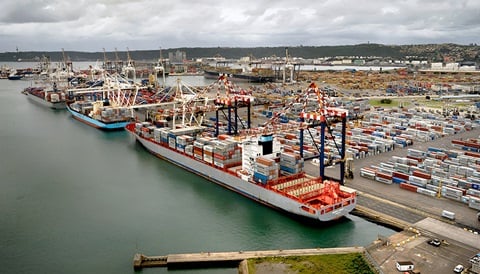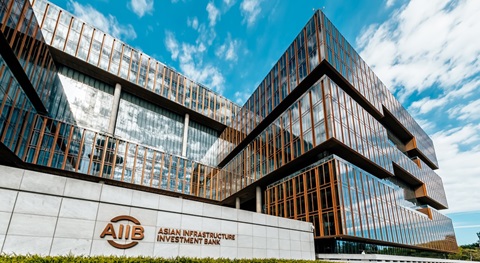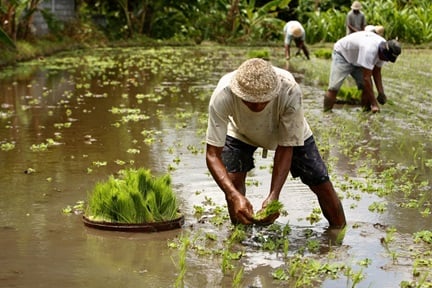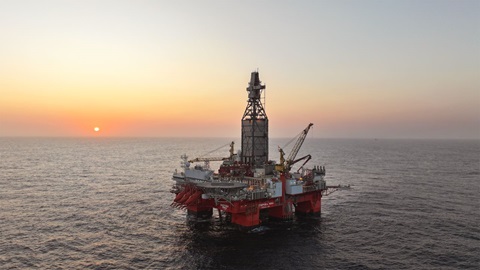The dawn of manufacturing in Africa
Africa exports raw materials and imports finished goods. But that is starting to change.
by Johan Burger

MANUFACTURING TELECOM EQUIPMENT IN AFRICA
Mobile phone manufacturing has started to take off in Africa. Rwanda became the first in East Africa to make mobile phone handsets when a Chinese technology firm A-Link set up a US$500,000 assembly plant in 2008. The phone, which costs US$39 works on GSM technology and uses replaceable SIM cards. The following year Zambia saw the setup of an even bigger plant producing over 1000 handsets per day. A decade later Rwanda became the first African nation to manufacture smartphones when the much published ‘Mara’ rolled out of a factory in Kigali special economic zone in 2019. The eponymously named Dubai-based telecom firm which invested in that plant is trying to take on China’s Tecno, which currently dominates the mobile handset market in Africa. The Mara Group plans to produce over 1.5m smartphones in Africa each year. In Mozambique, Malaysian firm M-mobile is investing more than US$3 million in setting up a mobile-phone handset manufacturing plant with a capacity to assemble between 50,000 and 70,000 mobile phones a month. It can also be set in the in the local Kinyarwanda language. ZTE Corp, another Chinese telecom major has announced that it would start assembling mobile phones in Ethiopia after signing a US$5.2m deal with the Organisation for Rehabilitation and Development (ORD) of Amhara. This comes after an attempt by the firm to assemble mobile phones in Nigeria failed when the plant it set up in Abuja was forced to shut down. Despite its difficult business climate Nigeria remains an attractive destination for the telecom sector given the size of its market (200m). In 2021, Dr Isa Pantami, Nigeria’s Minister of Communications and Digital Economy, announced that Nigeria would produce SIM cards as well as “60% to 70%” of the items needed in the telecommunication sector. Africa is currently mostly served by Chinese mobile devices, although there is room for others to compete in the growing low-cost smartphone market. In Rwanda, for example, Nokia and Motorola phones are priced as low as US$40 while the cheapest, the MTN branded ZTE phone costs just US$25. South Korea’s electronic giant LG has also entered the African market. It is investing US$1.4m in setting up a handset assembly plant in Kenya.
MANUFACTURING SOLAR PANELS IN GHANA
Francis Boateng set up the first Ghana’s first solar panel factory in Ghana in 2016 at a cost of US$50m. Today Solar Power Solutions (SPS) makes all kinds of solar power solutions, including PV streetlights. Boateng was driven by a passion for delivering electricity to provide electricity to rural communities in communities. He initially imported solar panels from China but eventually decided to produce them. SPS currently has the capacity to produce 32 MW. It will soon expand its solar electricity solution to 150 MW.[1]
POINTS OF INTEREST
- More than 600 million people in Africa currently do not have access to electricity. Governments across Africa have tapped renewable energy to meet the needs of their growing population. However, most of the technology and equipment is coming from China and Germany. There is a need to produce it locally. The SPS solar panel in Ghana is therefore a very welcome development.
- Home-grown solar panel manufacturers have started to emerge all across Africa. ARTSolar claims to be the ‘only locally owned solar panel manufacturer in South Africa. Others include Empower Solar Energy, IBC Solar, JA Solar South Africa, and JinkoSolar. Kenya’s Solinc East Africa makes solar panels not just for Kenya but also for the rest of the continent. This is not an exhaustive list but it does showcase a growing capacity in Africa to manufacture advanced solar technology. Domestic production, however, is far from sufficient to meet the continent’s demand but it presents a very real opportunity for investors to consider manufacturing solar panels in Africa.
MANUFACTURING FERTILISER IN KENYA
Kenya opened its first fertiliser manufacturing plant, Fertiplant East Africa Ltd, in April 2021. The plant was constructed at a cost of Sh3bn (US$28m). It has an annual capacity of two million bags of fertiliser (100,000 tons) and can provide for one million smallholder farmers.
Fertiplant fertilisers are customised for agricultural products such as tea, coffee, potatoes, maize, and sugar cane. However, the raw material is imported. The firm intends to export its products to Uganda, Rwanda and Burundi.
Kenya consumes 500,000 tons of fertiliser each year. Although the Fertiplant facility will not make it self-sufficient it may help reduce imports.
POINTS OF INTEREST
- Africa’s agricultural sector is dependent on imports of fertilizers to boost its productivity. Local production, therefore, makes a lot of sense. It would be better for Africa to reduce its reliance on imports by producing locally, either by means of licensing or franchising. It is a sector where foreign investors could step in. Indorama’s success in Nigeria shows the potential of the market.
- Asiatic Agricultural Industries, a family-run firm based in Singapore, is a major exporter of fertiliser to Africa. Yet, Singapore itself does not have the necessary raw materials. The firm imports its raw materials into Singapore and manufactures fertilizers for its customers overseas. If manufacturing in Africa is to take off it will need to persuade firms like Asiatic to enter into joint ventures with local firms.
PRODUCING CLAY TILES IN RWANDA
Construction of the first tile manufacturing plant in Rwanda has begun. It is the result of a partnership between the Nyanza district authority and the Milbridge Group of UAE. The US$29m plant will produce tiles under the brand name Africeramics. According to the mayor of Nyanza District, Erasme Ntazinda, construction of the plant will be completed by 2022 and will be something of a milestone for manufacturing in Rwanda. The district of Nyanza has a minority stake (1.5%) in the plant and the mayor hopes it will boost employment and lift the local economy. When complete the plant will employ over 100 people and create new business opportunities for local residents. More than 400 people are expected to be employed as casual workers in the construction of the plant. In its first phase of operation, the plant will manufacture 9,000 sqm of floor tiles per day, 18,000 sqm in the second phase and 36,000 sqm in the third phase. The three-phased construction will be complete within three years.
POINTS OF INTEREST
- Rwanda is a pioneer when it comes to innovation and launching value-adding initiatives. 27 years ago, the republic had descended into chaos as a brutal ethnic conflict broke out. Now it is one of the easiest places in Africa to do business. The World Bank’s 2020 Ease of Doing Business Index placed it second in Africa. It is also one of the safest places to do business. Its capital Kigali is one of the cleanest cities in Africa. President Paul Kagame has frequently stated that his small nation aspires to be the Singapore of Africa. He has fostered close ties with the government of Singapore and has even modelled Rwanda’s economic development board (RDB) on that of Singapore’s EDB. The tile manufacturing plant reflects the spirit of doing what has not been done before in Africa. It will not only provide jobs but also make a small contribution to the country’s GDP, which at US$10.12bn is still at the lower end of the spectrum.
- A number of Singapore firms have established themselves in Rwanda. Perhaps the most notable one is Olam, the global agrifood giant. Others include relatively small firms like CrimsonLogic and Poultry East Africa Limited. These are by no means the only foreign companies positioning themselves in this country. Volkswagen has an assembly plant in Kigali and Chinese firms operating in the free trade zone dominate the textile industry. The Rwanda Development Board (RDB), under the competent leadership of Claire Akamanzi, has been actively courting foreign investments for the country.
SUGAR INFRASTRUCTURE IN NIGERIA
Nigeria’s biggest private-sector conglomerate, the Dangote Group, recently committed itself to make Nigeria self-sufficient in sugar production. The firm has promised to invest more than US$700m in sugar projects in the state of Nasarawa.
Nigeria is Sub-Saharan Africa’s (SSA) second-largest sugar importer – next only to South Africa. After the completion of the sugar projects in Nasarawa and Adamawa (under the BIP), Nigeria will save more than half of the forex it currently spends on sugar imports.
At full operational capacity, the Dangote sugar factory will be able to crush 12,000 tons of cane per day. A 90MW power will generate enough power for the factory as well as supply electricity to communities living nearby. The company says it will also build up to 500 kms of roads to ease transport in the region.
The integrated sugar complex destined for Nasarawa state comprises of a 60,000ha sugar plantation and two sugar factories with the capacity to produce 430,000tpa of refined white sugar. This represents approximately 30% of Nigeria’s consumption.[2]
POINTS OF INTEREST
- Developing infrastructure such as sugar mills will not only help Nigeria cut imports but also create jobs, protect local currency, and drive economic growth.
- The sugar mill development by Dangote Sugar provides a benchmark for other firms - both local and foreign.
- Indorama Eleme Fertilizer & Chemicals Limited (IFL) is the largest producer of granular urea in Sub-Saharan Africa and is owned by the Singapore-based Indorama Group. Its single-train urea plant is located in the Nigerian city of Port Harcourt is among the world’s largest. Urea is a nitrogen-based fertilizer that is produced from natural gas and is widely used in agriculture. Indorama has also constructed a gas pipeline to transport natural gas to the facility and an export terminal at Onne Port to export urea to international markets.
- Singapore’s Tolaram started importing Indomie noodles into Nigeria in 1988. By 2015, Tolaram already had 17 manufacturing plants in Nigeria generating a revenue of almost US$1.2bn annually. It now also produces noodles in Egypt and runs a manufacturing facility in Eswatini. The Lagos Free Zone is its single biggest investment in a project so far.
Additional Readings
Andae, G. 2021. Nakuru fertiliser plant opens April. Business Daily Africa. 10 March 2021. Available at https://www.businessdailyafrica.com/bd/markets/commodities/nakuru-fertiliser-plant-opens-april-3317314?utm_source=traqli&utm_medium=email&utm_campaign=bdafrica_newsletter&tqid=1KataSF6DkQBplH6W2M6Fu.3Xjjq8o7OomvqjKXRQg. Accessed 18 May 2021.
Anon. 2021. Construction of US$29m tile plant in Nyanza District, Rwanda begins. Construction Review Online. 23 April 2021. Available at https://constructionreviewonline.com/news/construction-of-us-29m-tile-plant-in-nyanza-district-rwanda-begins/. Accessed 18 May 2021.
PH. 2021. Meet the founder of Ghana’s first solar panel manufacturing plant. How Africa. March 2021. Available at https://howafrica.com/meet-the-founder-of-ghanas-first-solar-panel-manufacturing-plant/?utm_source=feedburner&utm_medium=email&utm_campaign=Feed%3A+howafrica+%28How+Africa+and+More%29. Accessed 18 May 2021.
Anon. 2021. Dangote Sugar’s US$700mn investments to promote infrastructure development. African Farming and Food Processing. 28 April 2021. Available at https://www.africanfarming.net/crops/processing-storage/dangote-sugar-s-us-700mn-investments-to-promote-infrastructure-development. Accessed 16 May 2021.
Nan. 2021. Nigeria to produce smartphones for African continent – Pantami. The Guardian. 3 June 2021. Available at https://guardian.ng/news/nigeria-to-produce-smartphones-for-african-continent-pantami/. Accessed 20 July 2021.
References







